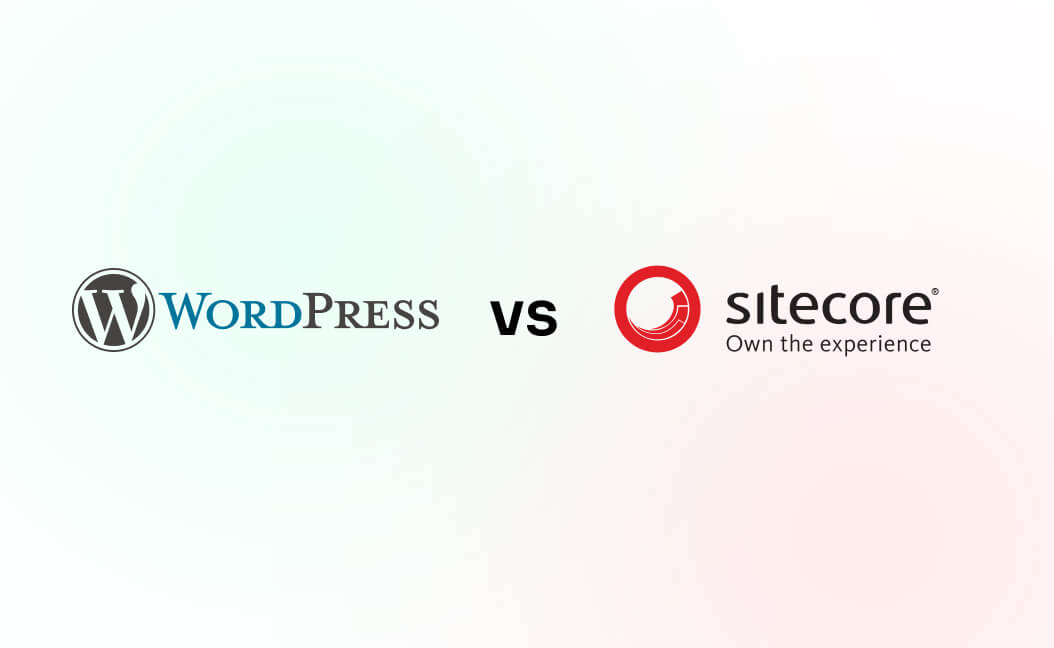When it comes to web development, choosing the right Content Management System (CMS) is crucial. As an expert WordPress developer, you understand the importance of selecting the perfect platform for your projects. In this article, we’ll compare WordPress, your specialty, with Sitecore CMS, to help you make informed decisions for your development ventures.
WordPress Development: Power in Simplicity
WordPress is renowned for its user-friendly interface, making it a preferred choice for developers and non-developers alike. With its extensive library of plugins and themes, you can create stunning websites quickly and efficiently. Let’s dive into why WordPress might be your go-to platform.
1. Accessibility and Ease of Use
WordPress is known for its simplicity and intuitive dashboard. Even clients without technical expertise can easily manage their websites, which saves you time on client training and support.
2. Robust Ecosystem
With over 50,000 plugins available, WordPress provides limitless possibilities for functionality enhancements. As a developer, you can find a plugin for almost any requirement, from SEO optimization to e-commerce integration.
3. Thriving Community
Being part of the WordPress community means access to an abundance of tutorials, forums, and resources. If you ever encounter a challenge, you’ll find ample support and solutions from fellow developers.
4. Cost-Effective Solution
WordPress is open-source and free to use, making it a cost-effective option for your clients. This allows you to allocate more resources to custom development and fine-tuning, ensuring your projects excel in performance.
Sitecore CMS: Enterprise-Level Capabilities
Sitecore CMS, on the other hand, caters primarily to large enterprises with complex digital marketing needs. Let’s explore why some businesses opt for Sitecore over WordPress.
1. Scalability and Personalization
Sitecore shines in scalability and personalization capabilities. It can handle high traffic volumes and offers advanced targeting features, making it an excellent choice for enterprises seeking customer engagement.
2. Digital Marketing Integration
Sitecore seamlessly integrates with various digital marketing tools, facilitating data-driven decisions and enhanced user experiences. If your client requires extensive marketing automation, Sitecore may be the better fit.
3. Security and Compliance
For industries with stringent security and compliance requirements, Sitecore’s focus on security measures can be a significant advantage. This is especially crucial for sectors like healthcare and finance.
4. Investment Costs
It’s essential to note that Sitecore CMS typically requires a more substantial initial investment compared to WordPress. Smaller businesses may find it cost-prohibitive.
The Verdict: Choosing the Right Tool for the Job
As an expert WordPress developer, you understand that every project is unique. WordPress excels in its simplicity, versatility, and cost-effectiveness, making it an ideal choice for small to medium-sized businesses and personal websites.
However, for enterprise-level clients with complex needs and a larger budget, Sitecore CMS can provide the scalability, personalization, and security necessary for success.
Ultimately, the choice between WordPress and Sitecore CMS depends on the specific requirements of your project and your client’s objectives. By considering the key differences between these two platforms, you can confidently select the one that best aligns with your development goals.
In conclusion, both WordPress and Sitecore CMS have their strengths, and your expertise as a WordPress developer positions you well to create exceptional websites. Keep these insights in mind when deciding which CMS to use, and you’ll continue to deliver outstanding results for your clients in the world of WordPress development.




